- Home
- Bill James
Blaze Away
Blaze Away Read online
Table of Contents
Cover
The Harpur and Iles Series by Bill James
Title Page
Copyright
Chapter One
Chapter Two
Chapter Three
Chapter Four
Chapter Five
Chapter Six
Chapter Seven
Chapter Eight
Chapter Nine
Chapter Ten
Chapter Eleven
Chapter Twelve
Chapter Thirteen
Chapter Fourteen
Chapter Fifteen
Chapter Sixteen
Chapter Seventeen
Chapter Eighteen
Chapter Nineteen
Chapter Twenty
Chapter Twenty-One
Chapter Twenty-Two
Chapter Twenty-Three
Chapter Twenty-Four
Chapter Twenty-Five
Chapter Twenty-Six
Chapter Twenty-Seven
Chapter Twenty-Eight
Footnotes
The Harpur and Iles Series by Bill James
YOU’D BETTER BELIEVE IT
THE LOLITA MAN
HALO PARADE
PROTECTION
COME CLEAN
TAKE
CLUB
ASTRIDE A GRAVE
GOSPEL
ROSES, ROSES
IN GOOD HANDS
THE DETECTIVE IS DEAD
TOP BANANA
PANICKING RALPH
LOVELY MOVER
ETON CROP
KILL ME
PAY DAYS
NAKED AT THE WINDOW
THE GIRL WITH THE LONG BACK
EASY STREETS
WOLVES OF MEMORY
GIRLS
PIX
IN THE ABSENCE OF ILES
HOTBED
I AM GOLD
VACUUM *
UNDERCOVER *
PLAY DEAD *
DISCLOSURES *
BLAZE AWAY *
* available from Severn House
BLAZE AWAY
Bill James
This ebook is copyright material and must not be copied, reproduced, transferred, distributed, leased, licensed or publicly performed or used in any way except as specifically permitted in writing by the publishers, as allowed under the terms and conditions under which it was purchased or as strictly permitted by applicable copyright law. Any unauthorised distribution or use of this text may be a direct infringement of the author’s and publisher’s rights and those responsible may be liable in law accordingly.
This first world edition published 2015
in Great Britain and the USA by
Crème de la Crime, an imprint of
SEVERN HOUSE PUBLISHERS LTD of
19 Cedar Road, Sutton, Surrey, England, SM2 5DA.
Trade paperback edition first published
in Great Britain and the USA 2015 by
SEVERN HOUSE PUBLISHERS LTD.
eBook edition first published in 2015 by Severn House Digital
an imprint of Severn House Publishers Limited
Copyright © 2015 by Bill James.
The right of Bill James to be identified as the author of this work has been asserted in accordance with the Copyright, Designs & Patents Act 1988.
British Library Cataloguing in Publication Data
James, Bill, 1929-author.
Blaze away. – (The Harpur and Iles series)
1. Harpur, Colin (Fictitious character)–Fiction. 2. Iles,
Desmond (Fictitious character)–Fiction. 3. Art thefts–
Investigation–Fiction. 4. Police–Great Britain–
Fiction. 5. Detective and mystery stories.
I. Title II. Series
823.9’14-dc23
ISBN-13: 978-1-78029-072-0 (cased)
ISBN-13: 978-1-78029-555-8 (trade paper)
ISBN-13: 978-1-78010-637-3 (e-book)
Except where actual historical events and characters are being described for the storyline of this novel, all situations in this publication are fictitious and any resemblance to living persons is purely coincidental.
This ebook produced by
Palimpsest Book Production Limited, Falkirk,
Stirlingshire, Scotland.
ONE
‘Here’s the house,’ George Dinnick said. They were looking at laptop photographs, George, Liz Rossol and Justin Benoit. ‘Probably the squire’s a few centuries ago. What might be called a gentilhommière – an English gentleman’s pad. Much refurbished and altered, but the dignified and graceful shell, as it always was. Additional stables. Obligatory paddocks. Six or seven bedrooms, bathrooms galore, butler’s pantry, larder, wine cellar, three big reception rooms downstairs, one where he usually hangs the stuff and does his deals. We think a concrete strongroom alongside the wine cellar for the pictures when they’re not on display. He’s a careful lad. Several probably fakes, but, as ever, Justin will do a pre-visit as Mr Ardent Private Art Collector and make sure the job is worth the trouble.’
‘Always available,’ Justin said. ‘Always ready to apply instinct, acting ability, experience and knowledge. And the greatest of these is instinct. In my case.’
Some people in this game resented having to rely on advice from a scholar and expert, particularly an expert as young as Justin Benoit, not long out of college, his face boyish, chubby, readily insolent. Liz regarded this kind of hostility as narrow and foolish. She knew George did, too. Almost all business enterprises had to call on professional guidance now and then to deal with a difficult problem or difficult problems. It should not be regarded as a creeping challenge to the leadership. If anything, George appeared to recognize that Justin brought real quality to the firm, though he certainly was very self-assured, even vain. Never mind: Liz considered these seemingly negative qualities could, in fact, be seen as the opposite – as supremely positive. Again, she thought George would agree. Justin’s flashiness came from interminable, brazen confidence, and such confidence could be a necessary asset when trying to convince a collector that a particular work was brilliantly genuine and absolutely worth its gorgeous price tag of six, seven, even eight figures. Of course, Liz was mightily biased in Justin’s favour. She rather liked his cockiness. Yes.
Dinnick said: ‘We take and then transfer our trove to that jolly friend in Ghent by customary methods, and it disappears into the great, shadowy, magnificently efficient arty elsewhere. Obviously, it would be best if we could get there while the stuff is actually on display, easy to unhook and multi-filch. The strongroom could cause difficulties – delays, and the need to force the door-combinations from him. We all hate that kind of blood and bone-break thing, I believe, but Jack Lamb’s not some innocent, pure at heart, pictures’ fan, is he? We’ve dealt several times with similar obstructiveness. Lamb has chosen risk as a colleague. That’s us. Risk can move in on him and become not risk at all but authentic, professionally delivered pain. He’s hardly going to call the police, is he, running the kind of business he does?’
Liz thought that George, sleek, sixty next birthday, no convictions, probably realized that as an argument to justify possible thuggery and worse this might appear very rough-and-ready and touched by self-interest. But they were in a very rough-and-ready trade, where self-interest dominated. They had met today in George’s Kensington, London flat. These apartments did not come at give-away cost, nor did the suitably fine furniture, carpets and general fittings. Nor did his wife’s clothes and hairdressing, nor their son Oliver’s education. People like Lamb could not be allowed to thwart decent profits for the firm. That would be blatant unkindness – as George would see it. Lamb might have set himself up as a feudal lord, but this didn’t mean he’d be getting any fealty from the George
Dinnick organization.
The laptop picture changed and showed two women, one young, one not so young, cantering in woodland on Welsh cobs. Dinnick said: ‘Liz has been there doing a bit of unobserved surveillance and photography.’
‘We hope unobserved,’ Liz said.
‘I’m sure,’ Dinnick said. ‘You’re brilliant at seeing and not being seen. We consider you as much an expert in fieldwork as Justin is at judging the status and value of a picture.’
Liz was about Justin’s age, mellow-voiced, alert-looking, mousy to blonde hair cut short and tufted, squarish face, neat nose, brown eyes wide apart, tall, unbony, reassuring breasts. Naturally, George knew she and Justin had something good going. George didn’t seem to mind. She and Justin took care the relationship never interfered with their work. The reverse, perhaps: it could produce a binding-together element in the firm. George Dinnick seemed to have trained himself to see the plus side of situations. What was that old song about a silver lining to every dark cloud? George would second that, she thought. In a commercial career, optimism and initiative gave strength to each other. But George could turn very unpleasant.
Liz said: ‘There seemed to be three of them in the house, beside staff: Lamb himself; what I gather is his live-in girlfriend – I have her as Helen Surtees, about twenty years old; and then this other, elderly woman riding with her here. Possibly, Jack Lamb’s mother. There was some information, I think, that his mother lived in the States, had a divorce there from a second husband, and reverted to her previous surname, possibly wanting to forget that US marriage had ever happened. Maybe she comes over for a holiday occasionally.’
‘They could be an extra way of persuasion if he’s backward about giving the strongroom combination codes,’ Dinnick said. ‘Once more, not a nice thought, but these women are part of that risk game. Jack buys them a lifestyle. The lovely house with views all the way to the sea, the nags and bathrooms and so on. They can’t expect immunity or tenderness.’
‘Here’s a car on its way to the house,’ Liz said. ‘Can we stop the pic a minute?’ The screen showed an oldish looking VW Golf. There appeared to be a man at the wheel, burly, fair-haired. ‘You can make out the reg,’ Liz said. ‘But it’s a reg that doesn’t exist. I paid X, who has that mate, Y, who has a chum, Z, who can get access to the computer, and we collect a blank when it’s offered this number plate.’
‘Standard police trickery,’ Dinnick said. ‘It’ll be from their special stock. I said Lamb couldn’t call the police for help in a crisis, but there might be a special arrangement with one officer.’
‘Yes, I thought maybe police,’ Liz said.
‘But why the anonymity?’ Justin said.
‘An understanding between our gentilhomme and the cop? Perhaps an informing set-up. The cop keeps in touch, but doesn’t want it known he keeps in touch,’ Dinnick said. ‘A kind of bargain? The cop gets tip-offs – good for the career – and in exchange doesn’t intrude on Lamb’s business. In fact, is asked up to the house to look at the works and so becomes sort of a party to what’s going on. He’s corralled, he’s compromised. This is a routine tactic by big-time snitches. It’s in the informants’ handbook under the chapter heading “How To Enmesh Your Dick”.’
‘Could be,’ Liz said.
‘Artfully compromised,’ Justin said.
‘There’s a Latin quote on the gate of the grounds meaning, if I’m recalling right from school, “we are all driven along the same road”,’ Liz said.
‘“Driven”?’ Dinnick replied. ‘But it doesn’t go on to say “with a heap of snatched daubs in the back of the estate car en route to Belgium”, does it?’
TWO
Twice lately Jack Lamb had invited Harpur out to Darien, his sixteenth-century manor house, near Chase Woods, to look at some art. This was new art – ‘new’ meaning it had only lately reached Jack, not that the artist had only just finished it. In some ways, asking Harpur to Darien was a crazy, dangerous break from their usual drill. Normally, they’d meet in discreet, sometimes remote spots: an old, reinforced concrete, coastal defence blockhouse left over from the war; likewise ex-wartime, a former anti-aircraft gun site on a hill at the edge of the city; or they’d each take a bag of washing to a suburban launderette somewhere and talk quietly among the other customers while watching the clothes jostle in the suds.
But Harpur recognized that Jack had a special purpose when he suggested the visits to his home. Harpur played along. In case Lamb was being watched, though, Harpur always drove a doctored car from the police pool to Darien, lately an old VW Golf, sometimes a comparably old Focus, like today, their registration plates a fiction. Some people knew other people who knew someone else who, for a fee – cash only – could persuade someone at the Vehicle Licensing Centre to link a registration to an owner, for a fee – cash only. The pool-car reg if fed into the computer would produce an answer along the lines of: ‘Not recognized in UK, try Mozambique.’
When Lamb wanted to show a collection he hung it in one of his big, high-ceilinged drawing rooms, where special lighting presented the works at their best for potential buyers. At other times he kept the items in an air conditioned bombproof, fireproof, multi-lock, concrete bunker he’d had built in the cellars. Harpur had looked at the Planning Authority application. Jack described it there as a Safety Room, in case of intruders, and/or an anti-nuclear attack shelter. And it could have functioned as either. Obviously, Jack would not have alarms fitted in Darien because, if activated, they might get him and his business awkward attention, police ferreting about legitimately all over the house, cellars included. ‘Could you open-up the shelter for us, please, Mr Lamb, so we can check all’s tickety-boo?’
No picture ever stayed long enough on display to cause discoloration of the drawing room’s green and gold flock wallpaper. If Harpur had only just met Lamb, and never been to his home or discussed decor, he thought he would have guessed Jack was a flock wallpaper person; though Harpur didn’t go presumptuously further and imagine he could have sixth-sensed the green and gold. Both drawing rooms had minstrels’ galleries, from a time when that kind of entertainment was all the thing and home-grown. Occasionally, Lamb would go up into one of the galleries and play a harmonica tune for Harpur, usually something from the First World War – say, Pack Up Your Troubles in Your Old Kit-Bag or It’s a Long Way to Tipperary. The drawing room had an echo, and these jolly, easy-beat tunes would hang in the air, like moments between bouts of whiz-bang, no-man’s-land shelling.
Lamb used to say, ‘Colin, would you like to come and take a peek in Darien?’
Harpur had discovered long ago that this was some sort of joke. Jack loved the occasional quip and would keep returning doggedly to his favourites. For instance, it amused him endlessly that a room he’d turned into a kind of gallery, showing paintings and drawings for sale, was actually called a drawing room! He believed a good joke should do plenty of regular, steady work – ‘like waitresses or trawlermen, Col,’ he said, often.
Jack had explained to Harpur that the name of his property – Darien – came from a poem learned at school. He would recite parts of it in a special, fluting, shrill tone, to imitate, to recapture for a minute or two, those classroom days. Over time, some of the words had become imprinted on Harpur’s mind. The verse said that far back in history explorers reached Darien in Panama. They stood silent ‘on a peak’ there, staring with ‘a wild surmise’ at each other, dumbstruck at finding the Pacific, which, up till then, they’d never even heard of, although there was so much of it: quite an eye-opener, and bound to cause wild surmising. Jack delighted in that peak-peek wordplay, the notion of this group on a peak taking a peek at an ocean – yes, an eye-opener.
Harpur always had a loud, congratulatory chuckle when Jack asked him to ‘come and take a peek in Darien.’ Lamb had continually put his balls and the rest of him at very major risk of pain and obliteration, entirely on Harpur’s behalf. So Harpur would never – could never – harshly, brutally, ask Jack
for fuck’s sake to replace peak-peek with a fresh witticism, capable of taking on the next three or four years’ tour of duty. Although Jack had a great, slabby, quadrangle of a face, stood six feet five and weighed about 260 pounds, he possessed true sensitivities, and his spirits could be severely hurt. Harpur had come across the term ‘mojo’ lately, meaning, as he understood it, someone’s selfhood and personal aura. He always went very gingerly with Jack’s mojo. An individual’s mojo gave him or her uniqueness, and Harpur certainly acknowledged Jack’s uniqueness and felt determined to safeguard it. Yes, his piping recitation voice might seem all wrong for someone grown so bulky and solid, but Harpur realized Jack had surprising complexities.
Harpur thought that quite a few of the paintings on show at Darien today might be genuine, not fakes, though he couldn’t tell whether Jack knew which. That kind of niggling question from Harpur, a cop, a detective cop, a top detective cop, would be considered by Lamb disgracefully uncivilized, especially if asked on his own historic property. Uncivilized or ‘inappropriate’ and ‘unacceptable’, as Jack might say. These were vague, weaselling, bromide terms he’d picked up from somewhere and came back to frequently, just as he did to his most cherished, gnarled jokes. ‘Tell me what you think of Heures Propices – Halcyon Hours – Col,’ he said, pointing at a small, surreal item in a wide, silver frame, an anti-comprehensible, frantic work featuring fractured layers of red, ochre, purple, blue-black and dun.
‘Understated yet richly purposeful,’ Harpur replied.
With his vast right fist Jack struck his vast left palm to signal excited harmony. ‘So true, but this is the secret of its mesmerism, isn’t it?’

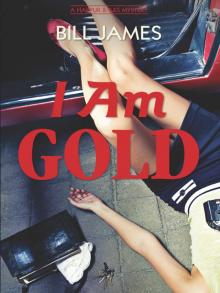 I Am Gold
I Am Gold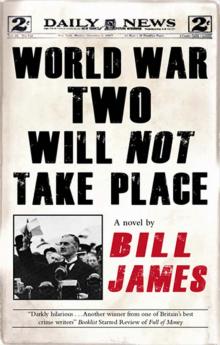 World War Two Will Not Take Place
World War Two Will Not Take Place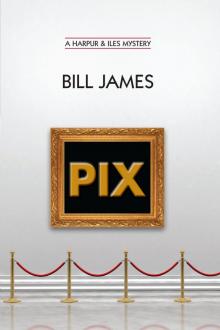 Pix (Volume Book 24) (Harpur & Iles Mysteries)
Pix (Volume Book 24) (Harpur & Iles Mysteries) Disclosures
Disclosures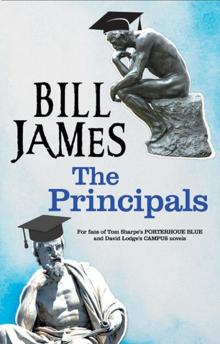 The Principals
The Principals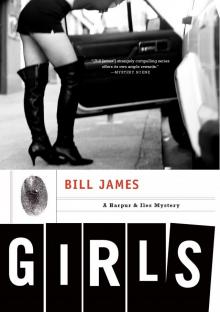 Girls
Girls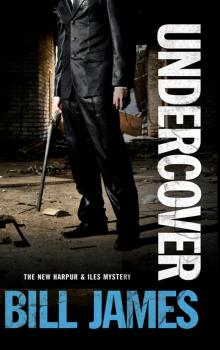 Undercover
Undercover Come Clean (1989)
Come Clean (1989)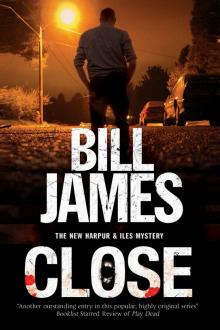 Close
Close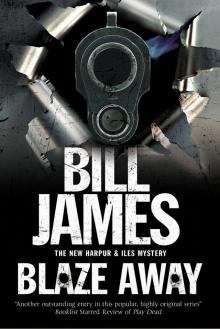 Blaze Away
Blaze Away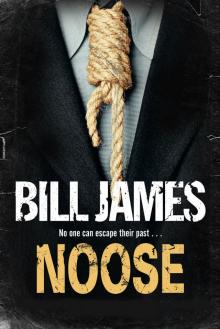 Noose
Noose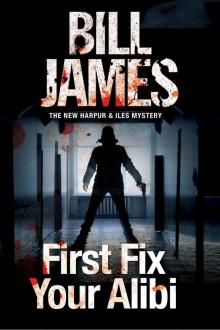 First Fix Your Alibi
First Fix Your Alibi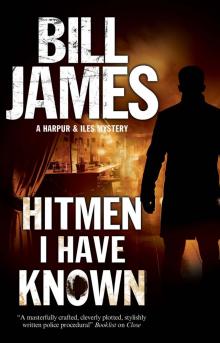 Hitmen I Have Known
Hitmen I Have Known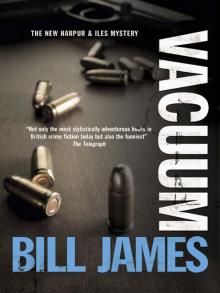 Vacuum
Vacuum Play Dead
Play Dead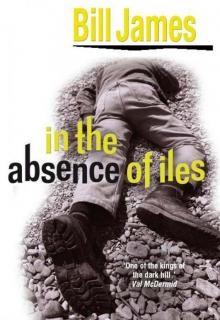 In the Absence of Iles
In the Absence of Iles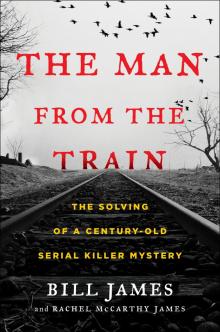 The Man from the Train
The Man from the Train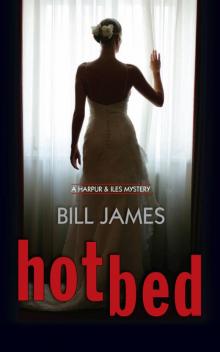 Hotbed
Hotbed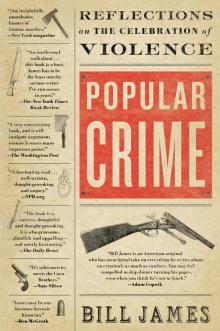 Popular Crime
Popular Crime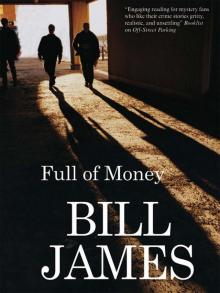 Full of Money
Full of Money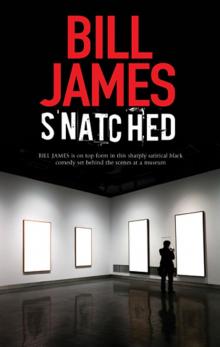 Snatched
Snatched